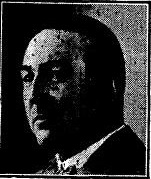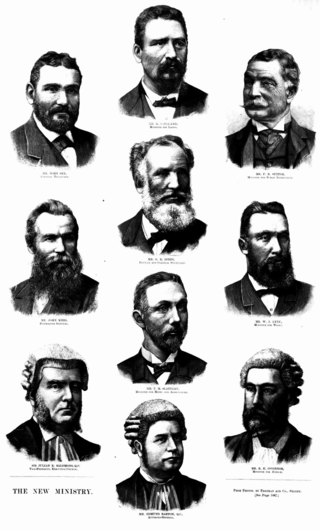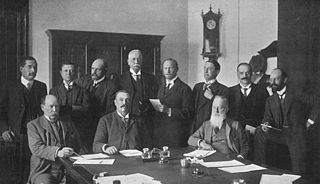Related Research Articles

South Africa is divided into nine provinces. On the eve of the 1994 general election, South Africa's former homelands, known as Bantustans, were reintegrated into the country, and the four provinces were increased to nine. The borders of Natal and the Orange Free State were retained, while the Cape Province and Transvaal were divided into three provinces each, plus North West Province which straddles the border of and contains territory from both these two former provinces. The twelfth, thirteenth and sixteenth amendments to the Constitution of South Africa changed the borders of seven of the provinces.

The Transvaal Colony was the name used to refer to the Transvaal region during the period of direct British rule and military occupation between the end of the Second Boer War in 1902 when the South African Republic was dissolved, and the establishment of the Union of South Africa in 1910. The borders of the Transvaal Colony were larger than the defeated South African Republic. In 1910 the entire territory became the Transvaal Province of the Union of South Africa.
Elections in South Africa include elections for the National Assembly, the provincial legislatures, and municipal councils. Elections are held on a five-year cycle and are conducted by the Electoral Commission (IEC), which is an independent body established by the constitution. The most recent elections for the National Assembly and provincial legislatures were held in 2024, while the most recent elections for municipal councils were held in 2021.
The following lists events that happened during 1910 in South Africa.
The Senate was the upper house of the Parliament of South Africa between 1910 and its abolition from 1 January 1981, and between 1994 and 1997.
The Unionist Party was a pre-apartheid South African political party, which contested elections to the Union of South Africa parliament from the 1910 South African general election until its merger into the South African Party just before the 1921 South African general election.

General elections were held in South Africa on 15 September 1910 to elect the 121 members of the House of Assembly. They were the first general election after the Union of South Africa was created on 31 May 1910.

Sir Charles Bullen Hugh Mitchell was a British Royal Marines officer and colonial administrator. As the latter, he served in British Honduras, British Guiana, Natal. He then served as Governor of Fiji, of the British Colony of Natal & Zululand, and of the Straits Settlements.

The South Africa Act 1909 was an act of the Parliament of the United Kingdom that created the Union of South Africa out of the former Cape, Natal, Orange River, and Transvaal colonies. The Act also allowed for potential admission of Rhodesia into the Union, a proposal rejected by Rhodesian colonists in a 1922 referendum. The draft proposal was supported by the four colonial parliaments, but was opposed by Cape Colony premier W. P. Schreiner, who raised concerns that it would strip rights from non-white South Africans.

The Colony of Natal was a British colony in south-eastern Africa. It was proclaimed a British colony on 4 May 1843 after the British government had annexed the Boer Republic of Natalia, and on 31 May 1910 combined with three other colonies to form the Union of South Africa, as one of its provinces. It is now the KwaZulu-Natal province of South Africa.

Hugh Mowbray Meyler was a British lawyer, army officer, balloon observer, and politician. After qualifying as a solicitor, and then serving in the British Army in the Second Boer War, he was a Unionist Party member of the first Parliament of the Union of South Africa from 1910 to 1914. After further army service in the First World War and in Ireland in the 1920s, he was the Liberal Party Member of Parliament (MP) for Blackpool in the UK from 1923 to 1924.
Sherbrooke was an electoral district of the Legislative Assembly in the Australian colony of New South Wales, existing from 1894 until 1913. It included Blacktown and Baulkham Hills. It was named after Robert Lowe, 1st Viscount Sherbrooke.

Sir Walter Francis Hely-Hutchinson was an Anglo-Irish diplomat and colonial administrator.

Thomas Henry Hassall was an Anglo-Australian politician.

Brigadier-General Sir Ernest Makins, was a British military officer, statesman and Conservative Party politician.

The third Dibbs ministry, the 27th ministry of the Colony of New South Wales, was led by Sir George Dibbs, leader of the Protectionist Party, following the 1891 New South Wales election, which saw the Labour Party win seats in the New South Wales Legislative Assembly and the balance of power. With no party having a majority, Sir Henry Parkes held on as Premier until October 1891 when he lost a vote in the Legislative Assembly, causing Parkes to resign as Premier and leader of the Free Trade Party. Dibbs formed the ministry on 23 October 1891, with Labour support, and comprised 10 ministers.
Elections to the Legislative Council were held in the Colony of Natal in September 1892. The initial result was a victory for the anti-responsible government party, which won 14 of the 24 seats. However, this was later overturned as four anti-responsible government members lost their seats after their election was annulled, and the by-elections were won by pro-responsible government candidates.
This is a list of members of the Victorian Legislative Assembly, from the elections of 20 April 1892 to the elections of 20 September 1894. From 1889 there were 95 seats in the Assembly.

James Matthew Toohey was a brewer and politician in the Colony of New South Wales.

The National Convention, also known as the Convention on the Closer Union of South Africa or the Closer Union Convention, was a constitutional convention held between 1908 and 1909 in Durban, Cape Town and Bloemfontein. The convention led to the adoption of the South Africa Act by the British Parliament and thus to the creation of the Union of South Africa. The four colonies of the area that would become South Africa - the Cape Colony, Natal Colony, the Orange River Colony and the Transvaal Colony - were represented at the convention, along with a delegation from Rhodesia. There were 33 delegates in total, with the Cape being represented by 12, the Transvaal eight, the Orange River five, Natal five, and Rhodesia three. The convention was held behind closed doors, in the fear that a public affair would lead delegates to refuse compromising on contentious areas of disagreement. All the delegates were white men, a third of them were farmers, ten were lawyers, and some were academics. Two-thirds had fought on either side of the Second Boer War.